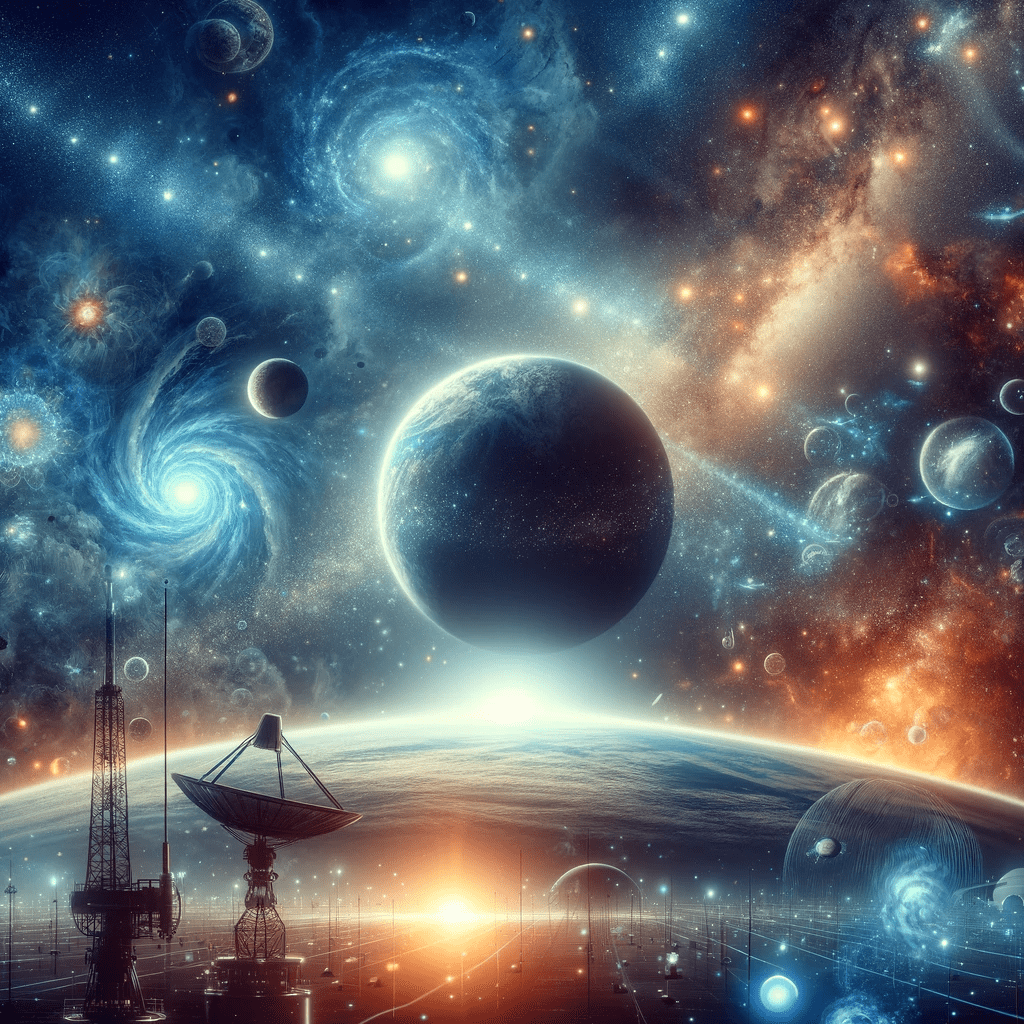Are We Alone in the Universe?

The universe is a vast, seemingly infinite expanse filled with countless stars, galaxies, and planets. It is a realm of awe and mystery, the magnitude of which perpetually captures our collective imagination. Are we alone in this cosmic expanse?
No. In every way possible, we are not alone.
One of his most notable public statements about the existence of extraterrestrial life came during a 60 Minutes interview in May 2017. When asked if he believed in aliens, Robert Bigelow replied, “I’m absolutely convinced. That’s all there is to it.” He added, “There has been and is an existing presence, an ET presence [on Earth]. And I’ve spent millions and millions. I’ve probably spent more as an individual than anybody else in the United States has ever spent on this subject.”
“100%” Aliens Have Already Arrived -Dr. Garry Nolan at SALT iConnections New York.
A 2019 Gallup poll found that about 16% of Americans personally know someone who has seen a UFO. Considering the U.S. population, that translates to millions of people. Moreover, the Mutual UFO Network (MUFON), one of the largest and oldest UFO investigative organizations in the U.S., reportedly receives hundreds to thousands of UFO sighting reports each month from around the world. A lot of these incidents go unreported due to fear of ridicule or disbelief.
While the estimates vary, it is suggested by some researchers that tens of thousands, possibly even millions, of people worldwide genuinely believe they have had an abduction experience. These individuals often recount remarkably similar narratives, describing being taken aboard an extraterrestrial spacecraft, usually by humanoid beings, and subjected to a series of examinations or procedures. Sometimes, these experiences are reported as isolated incidents, while others describe recurrent events spanning years, even decades.
- A Roper Poll commissioned by the Sci-Fi Channel in 2002, often referenced in discussions about the prevalence of alleged alien abductions, suggested that around 2% of Americans could have had an abduction experience. However, this survey has been criticized for its methodology and interpretation of results.
- The 2010 Baylor Religion Survey, carried out by Baylor University, found that around 3% of Americans believe they have had an encounter with a UFO.
There have been some interesting books written:
- “Abduction: Human Encounters with Aliens” by Harvard psychiatrist John E. Mack. Mack was a respected academic who controversially spent years researching people who claimed to have had extraterrestrial encounters.
- “The Threat: Revealing the Secret Alien Agenda” by David M. Jacobs, a historian who also studied the alien abduction phenomenon.
- Budd Hopkins, an artist turned UFO researcher, wrote several books on the subject, including “Intruders: The Incredible Visitations at Copley Woods” and “Missing Time.”
Astrobiology, a scientific field that studies the potential for life beyond Earth, also guides our search for extraterrestrial life. Key concepts in this pursuit are ‘biosignatures’ and ‘technosignatures’. Biosignatures are signs of life, such as specific gases in a planet’s atmosphere that could indicate biological activity. Technosignatures, meanwhile, could suggest the existence of technology and, by extension, intelligent life forms.
Recently, our advanced radio telescopes have picked up intriguing signals from distant celestial bodies, intriguing patterns that have piqued the interest of many scientists. While we can’t confirm the source or the nature of these signals as of yet, their discovery is a testament to our advancing capabilities in exploring the cosmos.
Parallel to the search for life in the universe is the study of Unidentified Flying Objects (UFOs). Over the years, countless encounters with unexplained aerial phenomena have been reported worldwide. Some of these accounts describe entities with human-like features, including blonde hair and blue eyes. These anecdotal accounts, intriguing as they are, continue to be a subject of investigation and debate in the scientific community.


